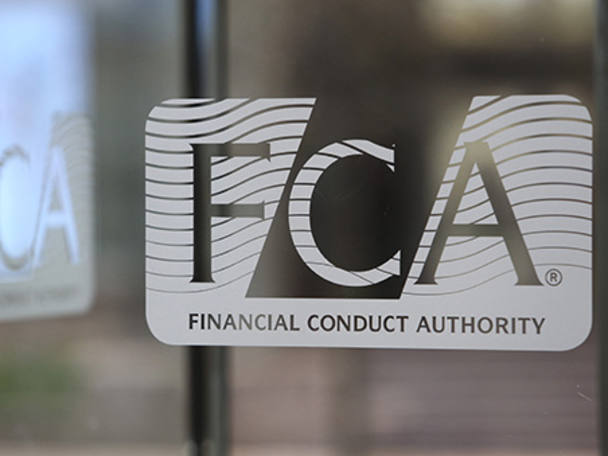Active fund fees could be in line for a major shake-up following a Financial Conduct Authority (FCA) report. The regulator has slammed asset managers for overcharging investors for persistent underperformance and called for a new, transparent fund structure.
The FCA says investors should pay a single, easily comparable charge which would include the many transaction and third-party costs currently charged over and above the ongoing charge figure (OCF). The regulator also says funds should be forced to reveal the full list of costs they pass on to investors and adhere to a single standardised list, so investors can easily compare funds and hold expensive managers to account.
The fee proposals are part of the FCA's inquiry into a lack of competition and value for money in the asset management industry. The FCA launched the report in November 2015 and the final findings will be published in February 2017. Its early conclusions make uncomfortable reading for the £7 trillion UK asset management industry, which is accused of price clustering, failing to pass on economies of scale in favour of profitmaking and underperforming passive funds. According to the report, investors would have earned £9,455 more by investing £20,000 in low-cost passive funds tracking the FTSE All-Share in the past 20 years than in the average active fund. That number could rise to £14,439 if transaction costs were taken into account.
"Serious concerns" on costs
Passive fund fees have been steadily falling over the past 10 years, says the FCA, while active fees have remained stubbornly high, despite the fact many of them do not beat their benchmarks. The Retail Distribution Review (RDR) in 2013 was designed to bring down the cost of active funds, but while passive fund costs have fallen significantly, actively managed fund charges have stayed broadly the same for the past 10 years, claims the regulator.
It also says funds have clumped together on price instead of competing with each other for the benefit of investors, and that active funds are "reluctant to undercut each other by offering lower charges. We also note that as fund size increases, price does not fall, suggesting the economies of scale are captured by the fund manager rather than being passed on to investors in these funds."
In theory investors pay a higher price to active fund managers to beat the market they invest in by finding opportunities outside the benchmark. But the FCA said "there is no clear relationship between price and performance - the most expensive funds do not appear to perform better than other funds before or after costs."
The regulator's report says that actively managed funds offered to retail investors actually underperform after costs, with those open to institutional investors barely achieving over-benchmark returns. At the same time, the majority of active funds are not taking active positions at all, with many merely hugging a benchmark. Meanwhile, the average passive fund costs 0.15 per cent of assets under management (AUM) compared to active at 0.9 per cent.
According to the FCA: "There is around £109bn in expensive funds that closely mirror the performance of the market (with a tracking error below 1.5) and are considerably more expensive than passive funds."
Investors also struggle to uncover the full list of costs they incur in actively managed funds, with many charges such as transaction fees - the cost of buying and selling investments - not explained properly to investors. These are not included in the OCF and are also generally higher for active rather than passive funds. According to the report, transaction fees can add up to 50 basis points on average to the cost of active management for equity investments.
Justin Modray, director at Candid Financial Advice, says the FCA report confirms problems such as lack of price competition and failure to pass on economies of scale. Taking M&G Optimal Income Fund (GB00B1H05718) as an example, he says: "The latest published accounts show the £18bn fund charged investors £253m in annual management fees over the year to September 2015. And M&G also levied an extra £34m of 'administration' fees, along with small print that says it can keep the surplus if it took too much. Performance has also been poor, with the fund ranked 44th out of 75 funds in its sector over the past three years.
"The cost of running an £18bn fund is little higher than running a £1bn, or even £500m fund."
But M&G says: "We fully disclose the cost of investing in an M&G fund to our customers in both the Key Investor Information Document (KIID) and the annual report. Our charges, before the cost of portfolio transactions, are expressed as the OCF. A small part of the OCF - 15p of every £100 invested - is allocated to administration costs, which cover such items as the maintenance of the share register and the distribution of income to customers."
The FCA has also suggested that the way fund houses charge fees - on an assets under management basis - means they are incentivised to act against the interests of customers. Although bigger funds tend to find it harder to capture opportunities and suffer from lower liquidity, companies are incentivised to increase assets in order to capture higher fees.
Dan Brocklebank, head of UK at Orbis Investments, said: "Currently, managers are incentivised to focus on growing assets under management rather than delivering superior investment performance. We believe in a fee structure that shares losses as well as gains. Investors should demand value for money from the fees they pay their managers; they shouldn't be charged for underperformance and should only pay when their manager delivers benchmark-beating returns. We see this report as a wake-up call for the industry and a positive step forward."
How a single fee would work
The FCA's proposed single fee could work in four ways. The most straightforward option would be to make funds' current OCF the single charge taken from the fund, with the manager bearing any shortfall from costs related to trading or dealing. But trading costs can be hard to predict, so this could leave managers with an unpredictable extra cost or, if trading charges are lower than expected, mean investors pay more than necessary.
Broker and investment banking company Liberum said: "Ultimately, increased visibility on fees leads to reduced costs for the consumer. However, there would appear to be conflicting messages in the report. We refer particularly to the suggestion for the introduction of an 'all-in fee' so investors can see what is being taken from a fund."
Another option would be to make the OCF the actual charge, with managers estimating transaction costs.
The thrid option would be a single charge including all charges taken from the fund, including trading costs, but with an 'overspend' buffer built in. This would compensate managers for unexpectedly high costs, and give them the option to take additional charges and explain those in the annual report.
The final option would be a new single charge, with no buffer for overspend. Under this option the fund manager would be bound by the agreed charge and pay any additional admin fees or transaction costs if they exceeded the figure. According to the FCA: "Under this option, the asset manager would bear all the risk of a difference between forecast and actual trading costs."
Performance and transparency
The FCA report said absolute-return funds, which aim to deliver a positive return regardless of market conditions, were failing to report performance against a relevant target or failing to accurately report underperformance.
"For example, an absolute return fund may be failing to achieve its performable objective of beating a cash benchmark by 2 per cent," said the report. "But these funds show their performance against a cash benchmark, giving the impression that they have outperformed."
The FCA also wants to clamp down on other types of funds that are underperforming, and not showing this clearly because they use inappropriate benchmarks and are unclear about their objectives. The regulator found that, on average, active funds underperformed the market when charges were taken into account by an annualised 60 basis points while many more were merely closet trackers.
"Some investors appear to be paying 'active' prices for products that are only partly active in nature. Since these products are similar to passive products, but just take small positions either side of the benchmark, many investors in expensive 'partly active' products would likely achieve greater value for money by switching to a cheaper passive fund in the same investment category," says the report.
Its proposed measures to combat that include requiring managers to set clearer and more specific fund objectives, provide a timeframe over which performance should be assessed and provide information enabling investors to assess whether performance objectives were being met, including disclosing benchmarks.
However some fund houses dispute the findings. Anthony Tait, head of the clients department at Baillie Gifford, says: "The FCA in its interim report states that overall actively managed investments do not outperform their benchmark after costs. However as noted in the report: 'there are active managers and active managers. They are not all the same'. Indeed there is a body of well-documented evidence that shows that managers...with high active share, low portfolio turnover and who engage with company management, are far more likely to outperform indices after fees over the long term."
Chris Cummings, chief executive of the Investment Association (IA), the trade body that represents UK investment managers, says: "The FCA's analysis and recommendations come at a time when the industry is already taking significant steps to improve investor confidence. Among new measures the IA has put forward is a detailed plan for a new model of charge and cost disclosure."
But Martin Gilbert, chief executive of Aberdeen Asset Management, says: "I welcome the FCA's interim report as it brings focus, and a sense of urgency, to confronting some key industry issues affecting customers. There is a need for increased transparency in relation to the services provided, the costs of such and also for ensuring value for money. Asset managers play a vital role in helping investors achieve their financial goals and the FCA's proposals will help deliver this. We look forward to working with the regulator and the industry to ensure all investors, large or small, receive the best possible service."
| The FCA's proposals include: ■ Strengthen duty on asset managers to act in the best interests of investors. ■ Introduce an all-in fee. ■ Require asset managers to be clearer about the objectives of their fund and report against those. ■ Clarify and strengthen appropriate use of benchmarks. ■ Provide investors with tools to identify persistent underperformance. ■ Make it easier for investors to move into better value share classes. ■ Require clearer communication of fund charges. ■ Require increased transparency, and standardisation of costs and charges. |











